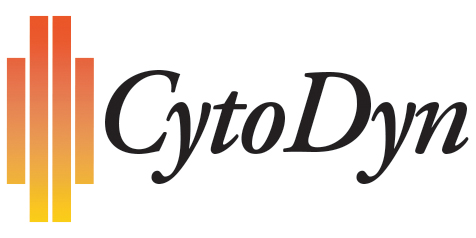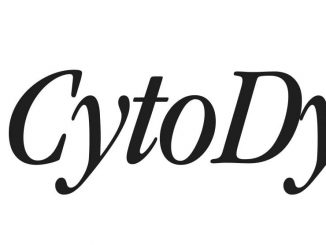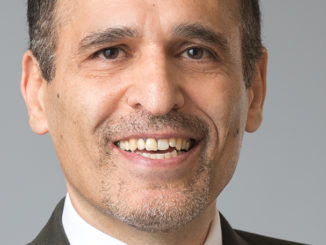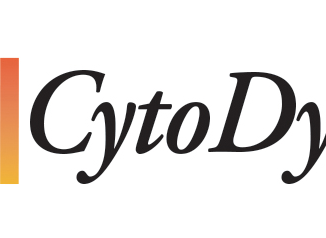
VANCOUVER, Washington and NEW YORK, Dec 17, 2019 – In exchange for the exclusive right to market and distribute leronlimab in the U.S. for HIV-related indications, Vyera will pay upfront and regulatory and sales-based milestone payments of up to $87.5 million, as well as a royalty of 50 percent on net sales. Vyera will also make an investment in CytoDyn of $4 million in the form of registered CytoDyn common stock
CytoDyn will maintain responsibility for the development and FDA approval of leronlimab for all HIV-related and other indications
VANCOUVER, Washington and NEW YORK, Dec. 17, 2019 — CytoDyn Inc. (otc.qb:CYDY), (“CytoDyn”) and Vyera Pharmaceuticals, LLC (“Vyera”), today announced that they have entered into a Commercialization and License Agreement (CLA) and a related Supply Agreement to commercialize leronlimab (PRO 140) in the U.S. for the treatment of HIV.
Under the terms of the CLA, CytoDyn will maintain responsibility for the development and FDA approval of leronlimab for all HIV-related and other indications, while Vyera has been granted an exclusive license to market and distribute leronlimab in the U.S. for the treatment of HIV. In exchange for such exclusive license, Vyera has agreed to pay upfront and regulatory and sales-based milestone payments of up to $87.5 million, as well as a royalty of 50 percent on net sales. Vyera also agreed to make an investment in CytoDyn of $4 million in the form of registered CytoDyn common stock.
It is anticipated that these agreements will enable CytoDyn to leverage Vyera’s well-established commercial infrastructure and highly-experienced sales team for the launch and commercialization of leronlimab and provide Vyera with a complimentary and novel product to bolster its pipeline of therapies for the treatment of infectious diseases.
“This agreement helps complete the strategic objective to further establish CytoDyn as a leader in efforts to enhance the lives of patients through target-specific medicine,” said Nader Pourhassan, Ph.D., CytoDyn’s President and Chief Executive Officer. “Vyera’s focus on developing therapies for patients living with serious and neglected diseases make them an ideal partner for this collaboration. We are excited to work with Vyera to leverage their platforms and capabilities to potentially offer a more effective treatment option for this HIV population.”
Averill L. Powers, Chief Executive Officer of Phoenixus AG, Vyera’s parent company, noted: “Vyera’s collaboration with CytoDyn demonstrates our commitment to address the needs of significant patient populations across our group companies generally and, in particular, a new level of our commitment to supporting patients living with HIV.”
About Leronlimab (PRO 140)
The U.S. Food and Drug Administration (FDA) has granted a “Fast Track” designation to CytoDyn for two potential indications of leronlimab for deadly diseases. The first as a combination therapy with HAART for HIV-infected patients, and the second is for metastatic triple-negative breast cancer (mTNBC). Leronlimab is an investigational humanized IgG4 mAb that blocks CCR5, a cellular receptor that is important in HIV infection, tumor metastases, and other diseases, including NASH. Leronlimab has successfully completed nine clinical trials in over 800 people, including meeting its primary endpoints in a pivotal Phase 3 trial (leronlimab in combination with standard anti-retroviral therapies in Highly Treatment Experienced (HTE) Multi-Drug Resistant (MDR) HIV Patients).
In the setting of HIV/AIDS, leronlimab is a viral-entry inhibitor; it masks CCR5, thus protecting healthy T cells from viral infection by blocking the predominant HIV (R5) subtype from entering those cells. Leronlimab has been the subject of nine clinical trials, each of which demonstrated that leronlimab can significantly reduce or control HIV viral load in humans. The leronlimab antibody appears to be a powerful antiviral agent leading to potentially fewer side effects and less frequent dosing requirements compared with daily drug therapies currently in use.
In the setting of cancer, research has shown that CCR5 plays an important role in tumor invasion and metastasis. Increased CCR5 expression is an indicator of disease status in several cancers. Published studies have shown that blocking CCR5 can reduce tumor metastases in laboratory and animal models of aggressive breast and prostate cancer. Leronlimab reduced human breast cancer metastasis by more than 98 percent in a murine xenograft model. CytoDyn is, therefore, conducting a Phase 2 human clinical trial in metastatic triple-negative breast cancer and was granted Fast Track designation in May 2019. Additional research is being conducted with leronlimab in the setting of cancer and NASH with plans to conduct additional clinical studies when appropriate.
The CCR5 receptor appears to play a central role in modulating immune cell trafficking to sites of inflammation and may be important in the development of acute graft-versus-host disease (GvHD) and other inflammatory conditions. Clinical studies by others further support the concept that blocking CCR5 using a chemical inhibitor can reduce the clinical impact of acute GvHD without significantly affecting the engraftment of transplanted bone marrow stem cells. CytoDyn is currently conducting a Phase 2 clinical study with leronlimab to further support the concept that the CCR5 receptor on engrafted cells is critical for the development of acute GvHD and that blocking this receptor from recognizing certain immune signaling molecules is a viable approach to mitigating acute GvHD. The FDA has granted “orphan drug” designation to leronlimab for the prevention of graft-versus-host disease (GvHD).
About CytoDyn
CytoDyn is a biotechnology company developing innovative treatments for multiple therapeutic indications based on leronlimab, a novel humanized monoclonal antibody targeting the CCR5 receptor. CCR5 appears to play a key role in the ability of HIV to enter and infect healthy T-cells. The CCR5 receptor also appears to be implicated in tumor metastasis and immune-mediated illnesses, such as graft-vs-host disease (GvHD) and NASH. CytoDyn has successfully completed a Phase 3 pivotal trial with leronlimab in combination with standard anti-retroviral therapies in HIV-infected treatment-experienced patients. CytoDyn plans to seek FDA approval for leronlimab in combination therapy and plans to complete the filing of a Biologics License Application (BLA) in 2019 for that indication. CytoDyn is also conducting a Phase 3 investigative trial with leronlimab (PRO 140) as a once-weekly monotherapy for HIV-infected patients and, plans to initiate a registration-directed study of leronlimab monotherapy indication, which if successful, could support a label extension. Clinical results to date from multiple trials have shown that leronlimab (PRO 140) can significantly reduce viral burden in people infected with HIV with no reported drug-related serious adverse events (SAEs). Moreover, results from a Phase 2b clinical trial demonstrated that leronlimab monotherapy can prevent viral escape in HIV-infected patients, with some patients on leronlimab monotherapy remaining virally suppressed for more than four years. CytoDyn is also conducting a Phase 2 trial to evaluate leronlimab for the prevention of GvHD and has received clearance to initiate a clinical trial with leronlimab in metastatic triple-negative breast cancer. More information is at www.cytodyn.com.
About Vyera
Vyera is a United States based biopharmaceutical company committed to developing and commercializing treatments that address serious and rare diseases with high unmet medical needs. Vyera supports programs that offer financial assistance to patients in need and gives discounts to organizations that provide care to underserved populations. Vyera’s research and development efforts focus on novel treatment options for toxoplasmosis and other rare or serious health conditions. https://www.vyera.com/.
Forward-Looking Statements
This press release contains certain “forward-looking statements” within the meaning of Section 27A of the Securities Act of 1933, Section 21E of the Securities Exchange Act of 1934 and as that term is defined in the Private Securities Litigation Reform Act of 1995, that involve risks, uncertainties, and assumptions that are difficult to predict. CytoDyn and Vyera (collectively, the “Companies”) intend that such forward-looking statements be subject to the safe harbors created thereby. Words and expressions reflecting optimism, satisfaction or disappointment with current prospects, as well as words such as “believes,” “hopes,” “intends,” “estimates,” “expects,” “projects,” “plans,” “anticipates” and variations thereof, or the use of future tense, identify forward-looking statements, but their absence does not mean that a statement is not forward-looking. The Companies’ forward-looking statements are not guarantees of performance, and actual results could vary materially from those contained in or expressed by such statements due to risks and uncertainties including: (i) the sufficiency of the Companies’ cash position, (ii) the Companies’ ability to raise additional capital to fund its operations, (iii) the Companies’ ability to meet its debt obligations, if any, (iv) the Companies’ ability to enter into partnership or licensing arrangements with third parties, (v) the Companies’ ability to identify patients to enroll in its clinical trials in a timely fashion, (vi) the Companies’ ability to achieve approval of a marketable product, (vii) the design, implementation and conduct of the Companies’ clinical trials, (viii) the results of the Companies’ clinical trials, including the possibility of unfavorable clinical trial results, (ix) the market for, and marketability of, any product that is approved, (x) the existence or development of vaccines, drugs, or other treatments that are viewed by medical professionals or patients as superior to the Companies’ products, (xi) regulatory initiatives, compliance with governmental regulations and the regulatory approval process, (xii) general economic and business conditions, (xiii) changes in foreign, political, and social conditions, and (xiv) various other matters, many of which are beyond the Companies’ control. CytoDyn urges investors to consider specifically the various risk factors identified in its most recent Form 10-K, and any risk factors or cautionary statements included in any subsequent Form 10-Q or Form 8-K, filed with the Securities and Exchange Commission. Except as required by law, neither Company the Company undertakes any responsibility to update any forward-looking statements to take into account events or circumstances that occur after the date of this press release.



